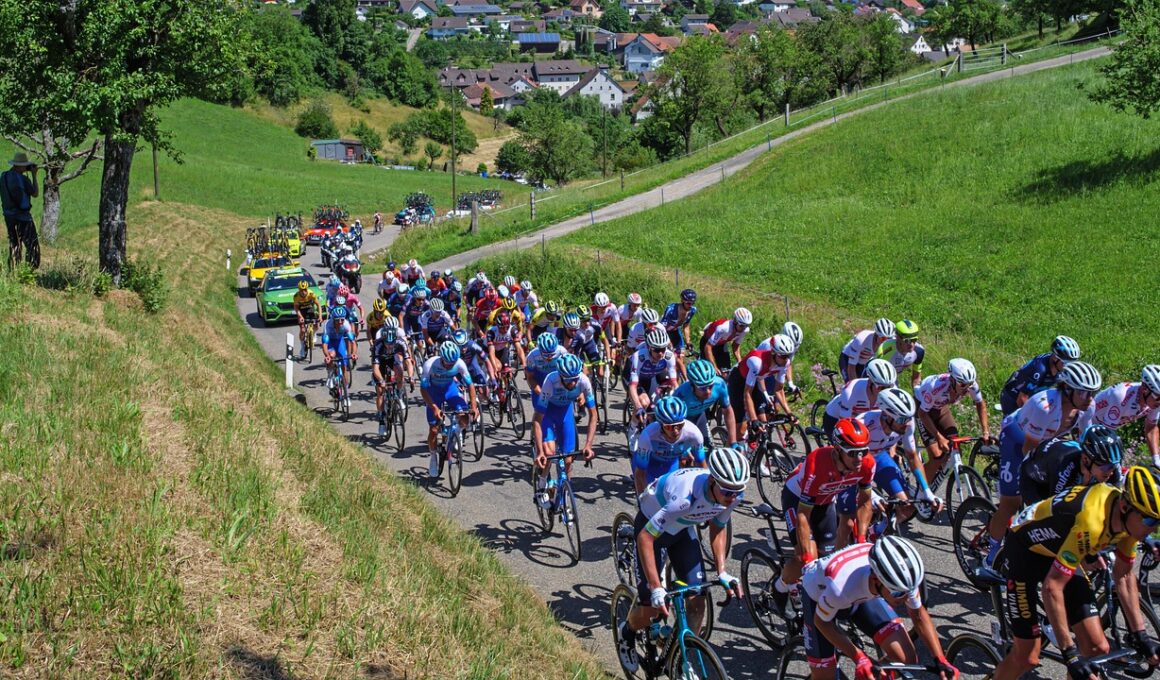Understanding the Need for Volunteers
Cycling events are a thrilling blend of competition, endurance, and community spirit. Volunteering for these events is vital as it ensures their smooth operation and success. Race organizers rely on dedicated volunteers to assist with various tasks—from registration to providing support on the race course. This involvement not only fosters a sense of community but also enhances the overall experience for participants and spectators alike. Beyond logistic support, volunteers play a crucial role in maintaining order and safety during races. Whether you’re a cycling enthusiast looking to contribute or a local resident wanting to support your community, your participation can make a significant difference. Adequate staffing through volunteers means a better-organized event. Moreover, volunteering allows individuals to witness firsthand the excitement of a cycling race, interact with cyclists, and gain insights into the sport. If you’re passionate about cycling or event organization, consider reaching out to local race organizers. There are numerous opportunities available for individuals looking to get involved and support these exciting events.
Finding Opportunities to Volunteer
To get involved in organizing cycling races as a volunteer, start by researching local cycling clubs and associations which often host events. Many racing events, particularly larger ones, utilize a dedicated volunteer coordinator or webpage that lists available positions. Websites such as BikeReg provide valuable information on upcoming cycling events and frequently include volunteer registration forms. Social media platforms can also serve as a great resource for discovering events that need volunteers and following local cycling organizations. Join local community groups, follow cycling pages, or check event listings in your area. It’s also useful to attend a few cycling events as a spectator first; this helps you gain an understanding of how these races function. You’ll also meet volunteers and organizers who can provide essential tips on how to get involved. Don’t hesitate to communicate your interest in volunteering on such occasions. Once you commit to volunteering, ensure your availability aligns with the event schedule and logistics, as good communication is essential for a successful experience.
Proper training and orientation are essential for volunteers to perform effectively during cycling events. Most organizers provide an onboarding process where volunteers are briefed about expectations, roles, and responsibilities. This might include training sessions before the event, distributing materials, or providing job shadowing opportunities. Volunteers are essential to various tasks including timing, crowd control, water station duties, and post-race clean-up. A well-informed volunteer can contribute significantly by enhancing participant experiences. Teamwork plays a big part, allowing everyone to function efficiently together. Some events may offer specialized training, focusing on safety protocols, effective communication, and emergency management. Getting involved also means attending pre-race meetings with the rest of the team, an excellent way to build camaraderie. Connecting with fellow volunteers can enhance your experience and provide valuable networking opportunities. As events often involve early morning hours, flexibility and good communication are paramount. When the event date nears, confirm your attendance and finalize details with the event coordinators to ensure you know where to report, what to bring, and your specific role during the race.
The Benefits of Volunteering
Volunteering for cycling races is not just fulfilling but carries numerous personal and professional benefits. Engaging with a race encourages a deeper connection to the cycling community while providing an opportunity to learn about race organization. By assisting with logistics, you can develop skills such as event management, teamwork, and leadership, which are valuable on any resume. Additionally, your contributions can open doors to networking opportunities that might lead to career possibilities in cycling event planning or related fields. Volunteering can also enhance your understanding of local cycling scenes, helping you meet like-minded individuals. Many volunteers report experiencing a sense of accomplishment once the event concludes successfully. Furthermore, volunteers often receive perks such as race swag, food and drink provisions, discounts on future events, or even free race entries for upcoming events. It’s a win-win situation; you give, and you also gain. Ultimately, becoming a part of the cycling community can reignite your passion for the sport while supporting racing endeavors and fostering connections with others who share similar interests.
Post-event activities also play an essential role in the overall volunteering experience. Once the cycling race has concluded, there are numerous tasks that volunteers can assist with. These tasks may include collecting race materials, cleaning up the venue, or providing feedback to organizers. Participating in these activities not only helps in wrapping up the event efficiently but also allows volunteers to reflect on their experiences and learn from them. In addition, volunteering post-event is a great opportunity for networking and expressing gratitude to the event organizers. Offering constructive feedback can enhance future races, improving future volunteering experiences for everyone involved. Many race organizers schedule a debrief after the event, which helps the team understand what went well and what needed improvement. Engaging in follow-up discussions to learn about the event’s impact can provide valuable insights. Each race presents new challenges and learning opportunities, and past experiences can equip volunteers with knowledge for the next event. Becoming a part of post-race discussions reinforces your value to the organizing team and to cycling enthusiasts.
Continuing Your Involvement
Engaging in a single event often leads to ongoing opportunities within the cycling community. Many volunteers find that their initial involvement paves the way for consistent participation in future events. Being familiar with the logistics, roles, and connections established during events can lead to more substantial responsibilities. You might find yourself being invited back for subsequent races or being offered new positions. Beyond a single race, getting involved with local cycling clubs, advocacy groups, or even event organizing committees can be incredibly fulfilling. Regular involvement keeps you updated on cycling developments and offers opportunities for personal growth. Explore becoming a member of local cycling groups or even taking courses in cycling safety or event management. Your commitment and willingness to assist can lead to more significant involvement in organizing. Some volunteers transition into paid roles or prominent leadership positions within organizations as their experience grows. Sharing your experiences and passion for cycling with others can also inspire others to volunteer, growing the community further.
Finally, your experience as a volunteer can transform how you view cycling events. As an active participant, you gain a deeper appreciation for the complexity and dedication needed to organize successful races. With this firsthand knowledge, you will better understand the challenges faced by race organizers, creating a more profound relationship with cycling as a sport. Volunteering fosters a strong commitment to improving the cycling environment in your community. Through your contributions, you can advocate for better facilities, encourage more events, and engage more people in the cycling realm. Promoting cycling culture can have positive knock-on effects for public health and the environment. Spreading the word about volunteer opportunities can further increase participation levels in the community. Share your stories and experiences with friends, and encourage others to join local efforts. Involvement can lead to phenomenal change within the cycling landscape in your area. Eventually, as the cycling community grows, it thrives through collective efforts, leading to a more vibrant and supportive surrounding for all cycling enthusiasts.


